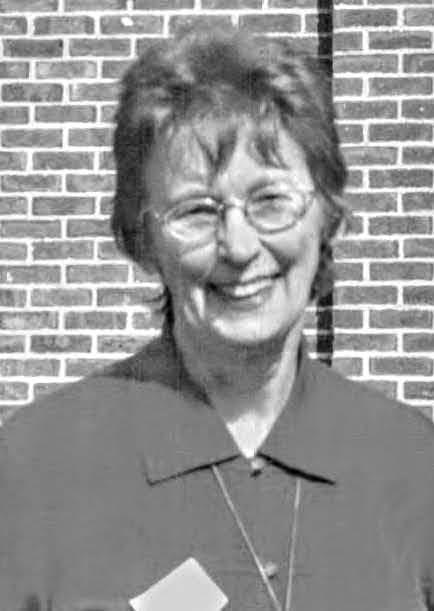Sophie’s career in paediatric physiotherapy extended over 60 years. She was a passionate paediatric physiotherapist who dedicated much of her career to sharing her knowledge and expertise with many physiotherapists and other healthcare professionals around the world.

Born in 1931 in Johannesburg, Sophie was the daughter of Lithuanian immigrants. She developed an interest in movement when a dancer in the Johannesburg Ballet and Opera Club and went on to study physiotherapy at the University of Witwaterswand.
Following qualification in 1951, Sophie took on her first post at Johannesburg General Hospital where she worked under the renowned physiotherapist, Lois Dyer. She subsequently moved to a post at Forest Town School for Spastics, also in Johannesburg.
With a glowing reference from Lois Dyer, Sophie was granted a travel scholarship which enabled her to visit the UK and US to investigate the systems being implemented in each country for the treatment of children with cerebral palsy. She met with Eirene Collis and Mrs Bobath in the UK, and other eminent therapists in the US, and found six systems being implemented in isolation from each other with conflicting theories.
Back at the Forest School, Sophie began to work out her ideas for treatment, taking an eclectic approach, selecting practical aspects from all the systems she had learnt about and applying them to individual children. It was during this time that the National Council for Cripples sponsored Sophie to run a training course which enabled her to share her eclectic approach more widely.
Her husband’s job took Sophie to the Rhodesian Federation in 1960 where, unable to find work, she wrote a handbook on ‘Physiotherapy in Cerebral Palsy’ which outlined methods from different approaches as well as her own ideas. This was published in the US in 1962. She also started a Red Cross Clinic for black children with cerebral palsy. She was later able to draw upon this cross-cultural experience to inform her practice in multi-cultural London.
In 1964, Sophie moved with her family to London where she was soon offered a post at the Cheyne Walk Centre for Cerebral Palsy.
Sophie worked as Director of Studies and Senior Physiotherapist at the Cheyne Walk Centre for 10 years between 1964 and 1974. She developed and organised 6-week multi-disciplinary courses for therapists from across Britain, Europe and the Commonwealth.
It was also during this time, that Sophie met Lady Allen and initiated work to open the first adventure playground for handicapped children in 1970. Such playgrounds spread throughout Britain.
Between 1974 and 1982, Sophie worked as Supervisor of Therapy Studies at the Wolfson Centre working alongside Professor Ken Holt at the Department of Developmental Paediatrics. She worked with children with all disabilities, but particularly with children with severe visual impairment. It was here that she began to recognise the parent’s perspective and to promote the importance of family-centred care and a collaborative learning approach.
In her later career Sophie continued to share her approach, lecturing and teaching both in the UK and many other countries. Her book, ‘Treatment of Cerebral Palsy and Motor Delay’, a distillation of her considerable experience, is still one of the leading therapy books in the field. First published in 1977, a sixth edition, co-authored with an Occupational Therapist (Anne Addison) was published in 2018.
Many of Sophie’s ideas are now embedded into clinical practice. In recognition of her considerable contribution to the profession, she was awarded a CSP Fellowship in 1996 and Honorary membership of APCP in 2002.
Number of subscribers: 1
